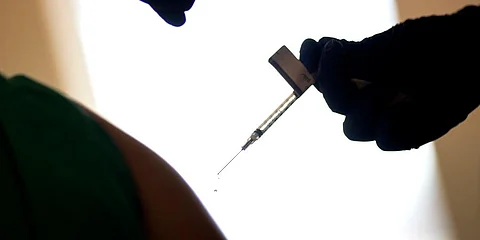

NEW DELHI: A surge in the H3N2, the dominant strain of Influenza A, cases in the city has led to an increase in people turning up for flu vaccines.
Hospitals and health centres told The New Indian Express that queries for the flu shot and inoculation have risen during the last 8-10 days.
Dr SPB Boytra, Chairperson, Department of Medicine, Sir Ganga Ram Hospital said that about 50 percent more people have taken the annual flu vaccine in recent days compared to the last year.
Dr Surajit Chatterjee, Senior Consultant, Internal Medicine at Indraprastha Apollo also said that a trend of increased vaccine (flu) uptake is driven by multiple reasons.
“People are panicking and while many are aware also,” Chatterjee said.
“They (people) are panicking since this particular strain—H3N2—exhibits aggrieved symptoms and affected patients take a little longer to fully recover,” he added.
Dr Boytra said that increased awareness about vaccination after Covid-19 has also a role to play behind the uptick in inoculation. “People are becoming more and more aware and maybe that’s why they are willing to take the vaccine,” he added.
However, doctors said the vaccine will not give immunity to people against the virus immediately after inoculation. “We are not advising against it (vaccine) but it should be kept in mind that the vaccine will not give immunity right away. It will take at least two-three weeks to develop the antibodies,” Chatterjee said.
However, they also said that vaccination should be mandatory for vulnerable groups and those living with life-threatening diseases. They also added that safe public practices like use of masks and hygiene should be followed to prevent infection.
“People who are involved in public dealing including healthcare workers; patients of cancer, transplant, CKD, elderly and other vulnerable groups should go for inoculation,” Dr Boytra said.
The subtype of Influenza A virus has been spreading fast in the country and has claimed two lives so far, raising alarm for the central government.
The illness is said to cause fever that lasts for 3-5 days and a prolonged cough and cold for up to three weeks. The H3N2 Influenza subtype causes more hospitalisations compared to other strains and the symptoms include persistent cough, headache, fever and sinus-related symptoms among others. The ICMR recently issued an advisory asking people to avoid self-medication and the use of antibiotics in this influenza outbreak.